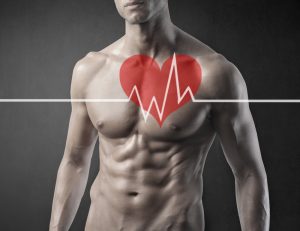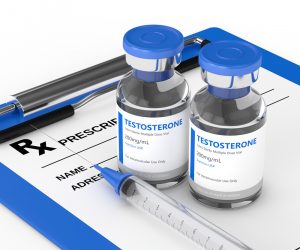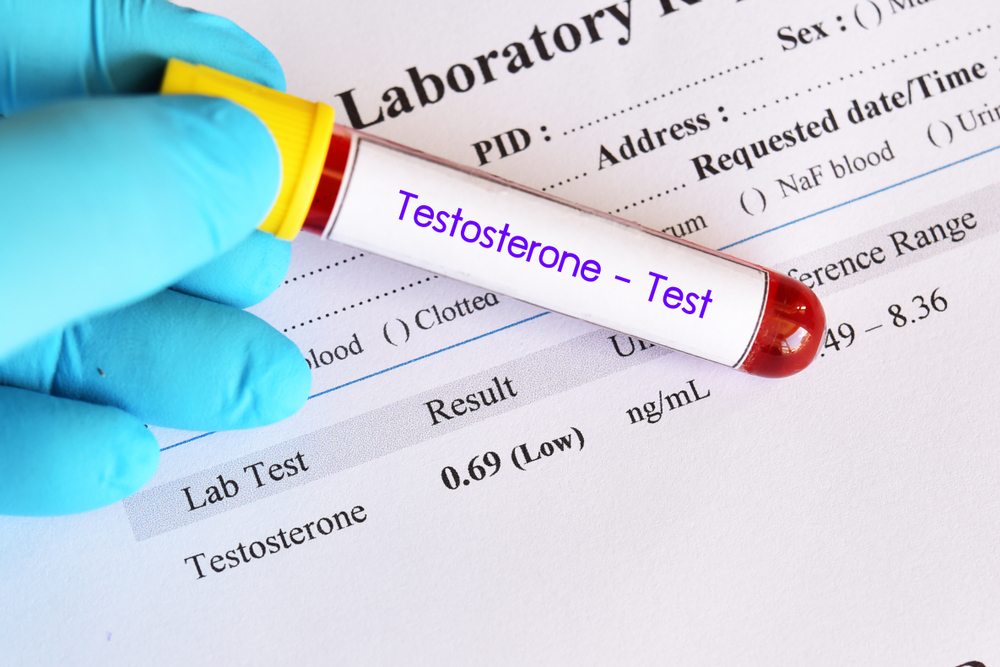Just like erectile dysfunction, low T or low testosterone, is a sexual health concern that many men encounter as they get older. It strikes about 20% of men who are in their 60s, and the odds increase to 30% in those who are in their 70s.
What is testosterone?
Testosterone is an important male sex hormone that takes on a major role in various male sexual and reproductive functions. It is essential in the growth and development of the testicles, prostate, and other male reproductive organs. It is also instrumental in promoting increased bone and muscle mass and strength, growth of body hair, and prevention of bone loss and osteoporosis.
What is the ideal amount of testosterone in men?
For an average man to be considered healthy, he should have between 270 nanograms per deciliter and 1,070 nanograms per deciliter of testosterone. Typically, guys who are in their 20s and are at their sexual peaks have an average testosterone level of 679 nanograms per deciliter of testosterone. If yours fall within that ideal range, then you are all good. However, if yours is below the normal range, you should go see your doctor immediately.
Why is it important to have a normal testosterone level?
There are many health benefits that you can get from having a normal testosterone level, including:
- You can effectively manage your blood pressure levels.
If your blood pressure level is high, you are exposing your heart and arteries to unnecessary strain that can cause them to weaken, lose flexibility, and get damaged, resulting to clogging, bursting, stroke, or heart attack.
- Your heart is protected against diseases.

If you have a weak heart, pumping blood throughout your body will be difficult. Oxygen and other essential nutrients will not be able to reach your tissues, organs, and other body parts, resulting to health issues and complications. Blood will also not get to your penis and cause you to have a hard time getting a firm and long-lasting erection for sex.
- You can prevent obesity.
If you are obese, it means that your body is holding an excessive amount of body fat that endangers your heart, kidneys, and other vital organs. Obesity makes you prone to high blood pressure or hypertension, diabetes, heart attack, stroke, and many other medical conditions. It can also increase your odds of developing cancer, gout, osteoarthritis, gallstones, and gallbladder disease.
What happens if you have low T?
Once your testosterone levels start to decline, you may encounter the following side effects:
1. You will have low energy.
Doing physically demanding activities will be tough, as you will now have decreased energy levels. Unlike when you were younger, running, swimming, playing sports, and others strenuous tasks will leave your body sore or in pain longer than usual.
2. You will have reduced libido.
Your sex life will never be the same. Because of your low T levels, your libido or sex drive will experience a decline, which can make you lose interest in sex and negatively affect your sexual relationships.
3. You will have trouble with getting erections.
A lack of libido and difficulty getting erections usually come hand in hand. Your penis will be unable to get hard during sex or will not last long enough to give you and your partner a pleasurable time in the bedroom.
4. You will gain weight.
Weight gain can sometimes be caused by insufficient testosterone in the body. It is not always about eating so much or the wrong kinds of foods. Because testosterone is valuable in keeping your bone and muscle health in good condition, having less of it can bring about drawbacks that can result to unwanted pounds and fats.
5. Your mental health will suffer.
Testosterone is one of those hormones in your body that contributes to the proper functioning of your brain. It helps the brain process stimuli that affect your mental health. Various studies have found that having low T may lead to depression, mood swings, increased anxiety and stress, and other mental health problems.
6. You will have increased risk of osteoporosis.
Osteoporosis is a disease that affects the bones in the body. If you have it, your bones become weak and fragile, making them more prone to breakage. Among its common warning signs include poor posture, bone fractures, back pain due to collapsed or fractured vertebra, and shrinking or losing height.
7. Your cholesterol levels will increase.
In the United States alone, there are more than 73 million adults who have high cholesterol, and they have an increased likelihood of experiencing chest pains, stroke, heart attack, and other heart diseases. For improved health and better cholesterol level management, you should eat more fruits and vegetables, exercise, limit your alcohol consumption, and include healthier fats in your diet.
8. You will have problems getting enough sleep.
The importance of getting enough sleep cannot be emphasized enough. If you fail to get 7 to 8 hours of sleep every night, it will be very challenging for your body to function right and well. Your brain, heart, and other vital organs need that time to rest, repair, and rejuvenate, so you should have the energy and strength to perform various tasks the next day. If you have low testosterone, your sleep cycle is disrupted, negatively impacting your mood, energy levels, injury recovery time, and many other bodily functions.
What should you do to increase your testosterone?
There are different treatment methods available for low T.
Your doctor may prescribe you to get testosterone replacement therapy, which comes in different forms:

- Skin patches or gels – which are usually applied on the shoulders or arms
- Injections – which are usually injected into the arm, thigh, or buttocks
- Testosterone pellets – which are inserted into the buttocks
They may also advise that you start living a healthy lifestyle by being more physically active, staying away from stress, quitting smoking or minimizing alcohol drinking, and eating natural testosterone-boosting foods, such as tuna, oysters, eggs, beans, beef, and shellfish.







